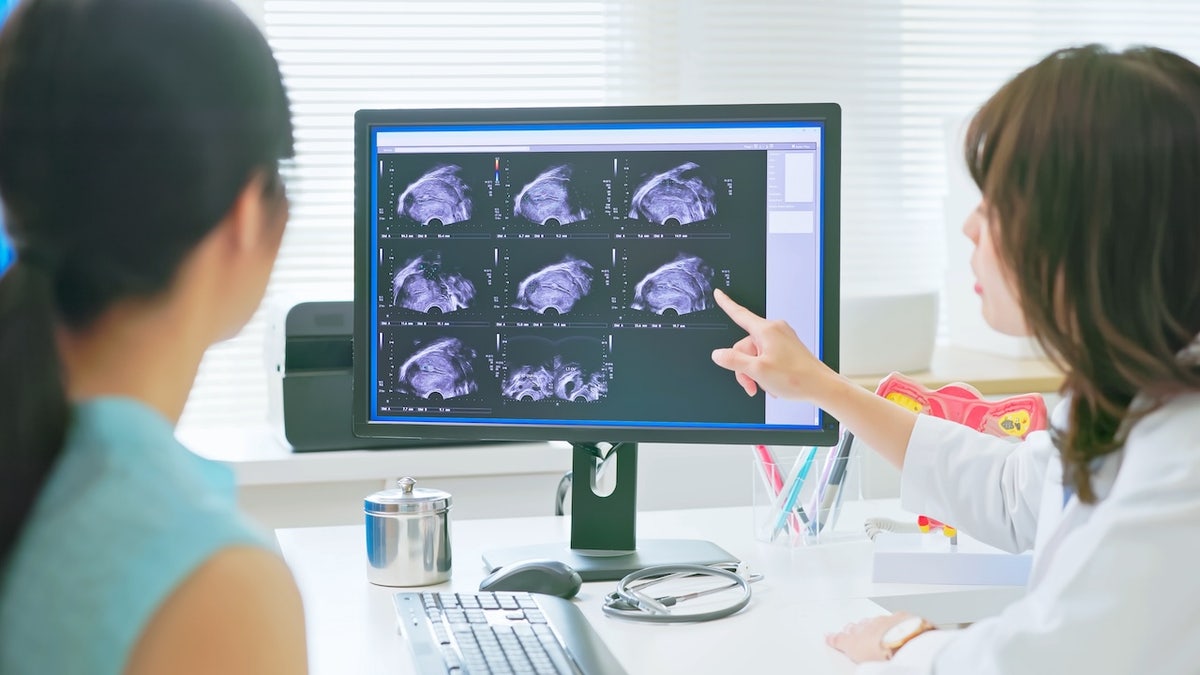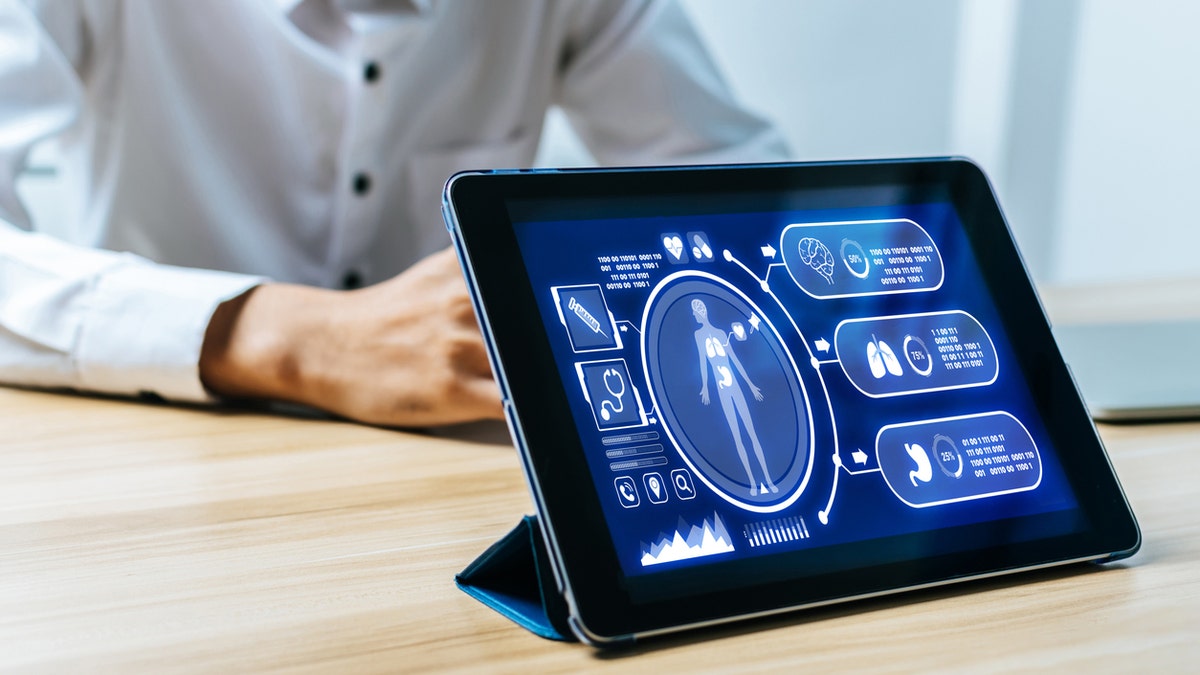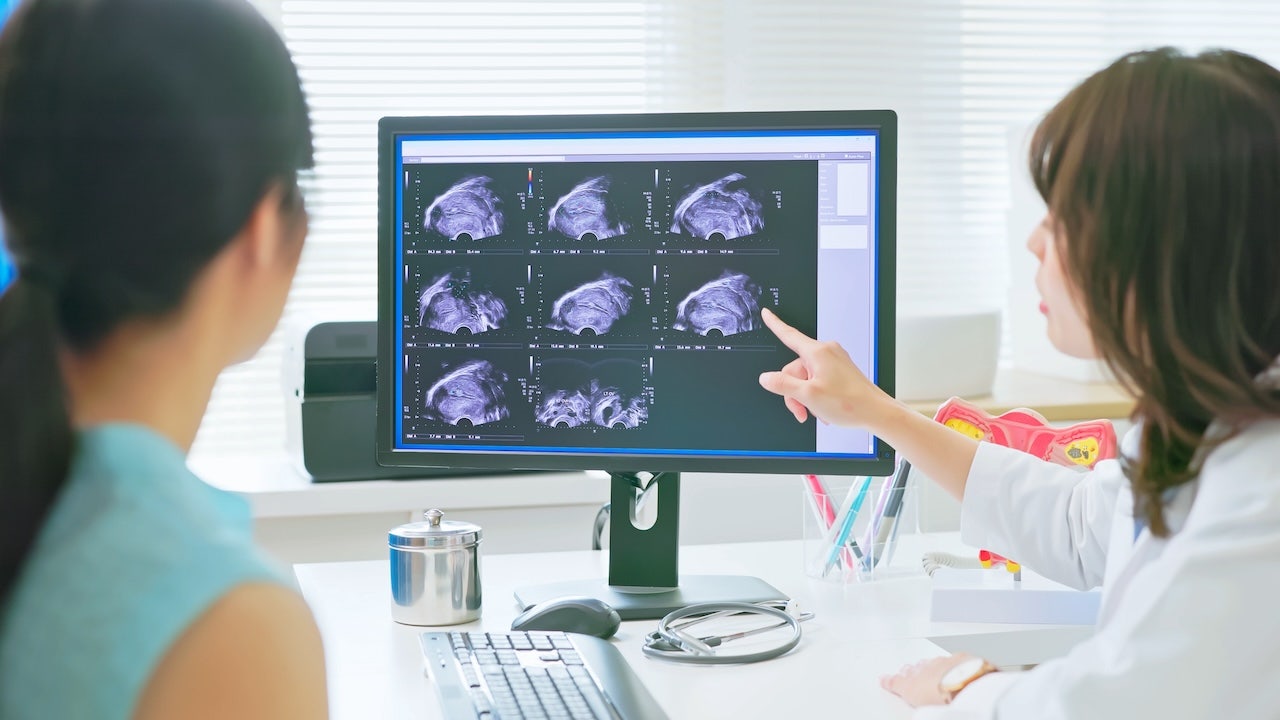For the nearly 20,000 women in the U.S. who receive an ovarian cancer diagnosis each year, artificial intelligence is emerging as a potentially life-saving tool.
In a new study led by researchers at Karolinska Institutet in Sweden, AI models did a better job of detecting ovarian cancer than human doctors.
The research, which was published in Nature Medicine, tested an AI model’s ability to distinguish between benign and malignant lesions on the ovaries, according to a press release.
WHAT IS ARTIFICIAL INTELLIGENCE?
The AI model was trained on more than 17,000 ultrasound images from 3,652 patients across 20 hospitals in eight countries, the release stated.
“High-quality diagnostics can become more accessible, particularly in regions with limited access to experienced examiners,” said a study author. (iStock)
The AI model achieved an accuracy rate of 86% for detecting ovarian cancer, compared to 82% for human experts and 77% for those with less expertise.
“I was surprised that the AI models outperformed all 33 of the expert examiners,” study author Elisabeth Epstein, a professor at the Department of Clinical Science and Education at Karolinska Institutet, told Fox News Digital.
PARENTS TRUST AI FOR MEDICAL ADVICE MORE THAN DOCTORS, RESEARCHERS FIND
Ovarian tumors are common and “often detected by chance,” according to Epstein.
“Our study demonstrates that AI-driven diagnostic support can significantly improve ovarian cancer diagnosis by enhancing triage efficiency, reducing diagnostic errors and addressing the shortage of expert examiners,” she said in a statement to Fox News Digital.

The AI model achieved an accuracy rate of 86% for detecting ovarian cancer, compared to 82% for human experts and 77% for those with less expertise. (iStock)
“High-quality diagnostics can become more accessible, particularly in regions with limited access to experienced examiners,” Epstein went on.
“This will help reduce waiting times, avoid unnecessary interventions and facilitate earlier cancer detection, ultimately improving patient outcomes and ensuring more accurate diagnoses.”
AI could also reduce the need for referrals as well as the chances of misdiagnosis, the researchers noted.
“I was surprised that the AI models outperformed all 33 of the expert examiners.”
Dr. Brian Slomovitz, director of gynecologic oncology and co-chair of the Cancer Research Committee at Mount Sinai Medical Center in Florida, noted that screening and early detection of ovarian cancer is the “holy grail” to reduce deaths from this disease.
“This large retrospective trial clearly demonstrates that there may be a role in incorporating AI-driven support to better interpret ultrasound findings in patients with a pelvic mass,” Slomovitz, who was not involved in this particular study, told Fox News Digital.
“This, by itself, increases the accuracy of the radiologic findings by both decreasing the false positive rate (leading to unnecessary surgeries) and decreasing the false negative rate (missing cases of cancer).”

Screening and early detection of ovarian cancer is the “holy grail” to reduce deaths from this disease, one oncologist noted. (iStock)
There are other ways to evaluate ovarian cancer patients beyond radiology scans, the doctor noted.
“Menopausal status, presence or absence of symptoms, and blood test results are some other factors used to determine which patients may or may not need surgery,” Slomovitz said. “It would be great if these factors could be incorporated into the AI modeling.”
OVARIAN CANCER SIGNS, SYMPTOMS, DIAGNOSIS AND TREATMENT OPTIONS
In addition to showing improved accuracy of ultrasound analysis, the AI technology will need to demonstrate a survival benefit in order to gain widespread use, he added.
“I am optimistic that artificial intelligence will be a part of the armamentarium used to improve the care we offer to our patients.”

“I am optimistic that artificial intelligence will be a part of the armamentarium used to improve the care we offer to our patients,” an oncologist said. (iStock)
Dr. Harvey Castro, a Dallas, Texas-based board-certified emergency medicine physician and national speaker on AI in health care, agreed that the tech has the potential to improve cancer diagnostics, but cautioned that limitations remain.
CLICK HERE TO SIGN UP FOR OUR HEALTH NEWSLETTER
“The AI relies on diverse, high-quality data, and bias could limit effectiveness,” he told Fox News Digital.
“It’s also not fully validated for routine clinical use, and transparency and regulatory concerns remain unresolved.”
Castro reiterated that additional research is needed to determine how well AI adapts to real-world settings, the long-term impact on health care costs and outcomes, and whether the tech will be able to handle diverse populations and different clinical environments.
For more Health articles, visit www.foxnews.com/health
The researchers also acknowledged the potential limitations of the study.
“It is not a prospective study, so additional data is needed to know how it would perform in a real clinical setting,” Epstein told Fox News Digital.
OVARIAN CANCER COULD BE DETECTED EARLY WITH A NEW BLOOD TEST, STUDY FINDS
The team is planning to soon begin clinical studies at Stockholm South Hospital in Sweden, she added.
“It is still the physician who remains responsible for the patient’s diagnosis and treatment.”
Epstein noted that AI should only be used as a diagnostic support and not a replacement for human physicians.
“It is still the physician who remains responsible for the patient’s diagnosis and treatment,” she stated.
CLICK HERE TO GET THE FOX NEWS APP
The Karolinska Institutet research team collaborated with the KTH Royal Institute of Technology. Funding was provided by the Swedish Research Council, the Swedish Cancer Society, the Stockholm Regional Council, the Cancer Research Funds of Radiumhemmet and the Wallenberg AI, Autonomous Systems and Software Program (WASP), according to the release.





